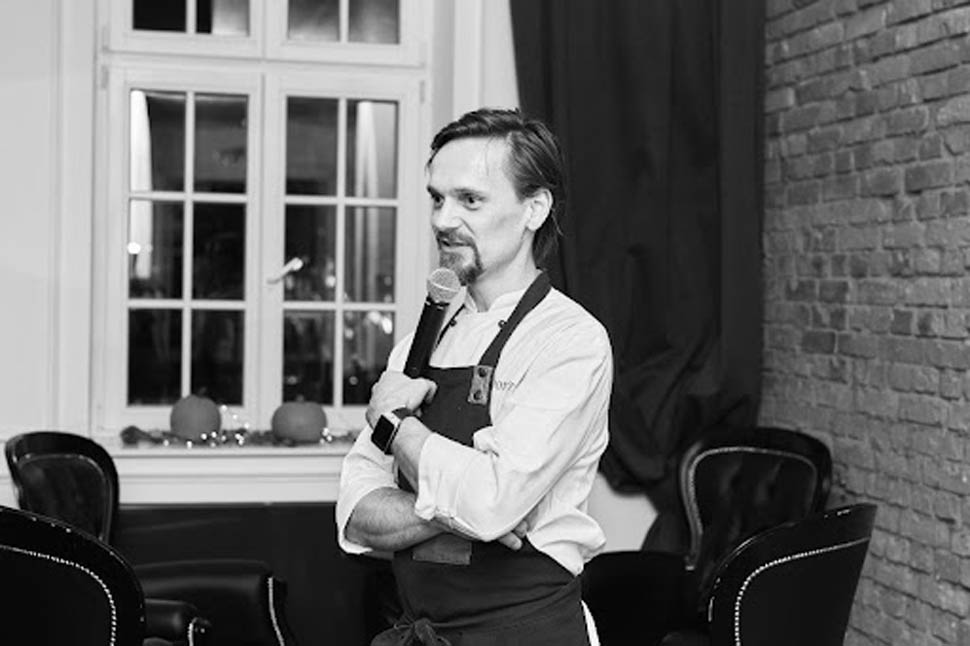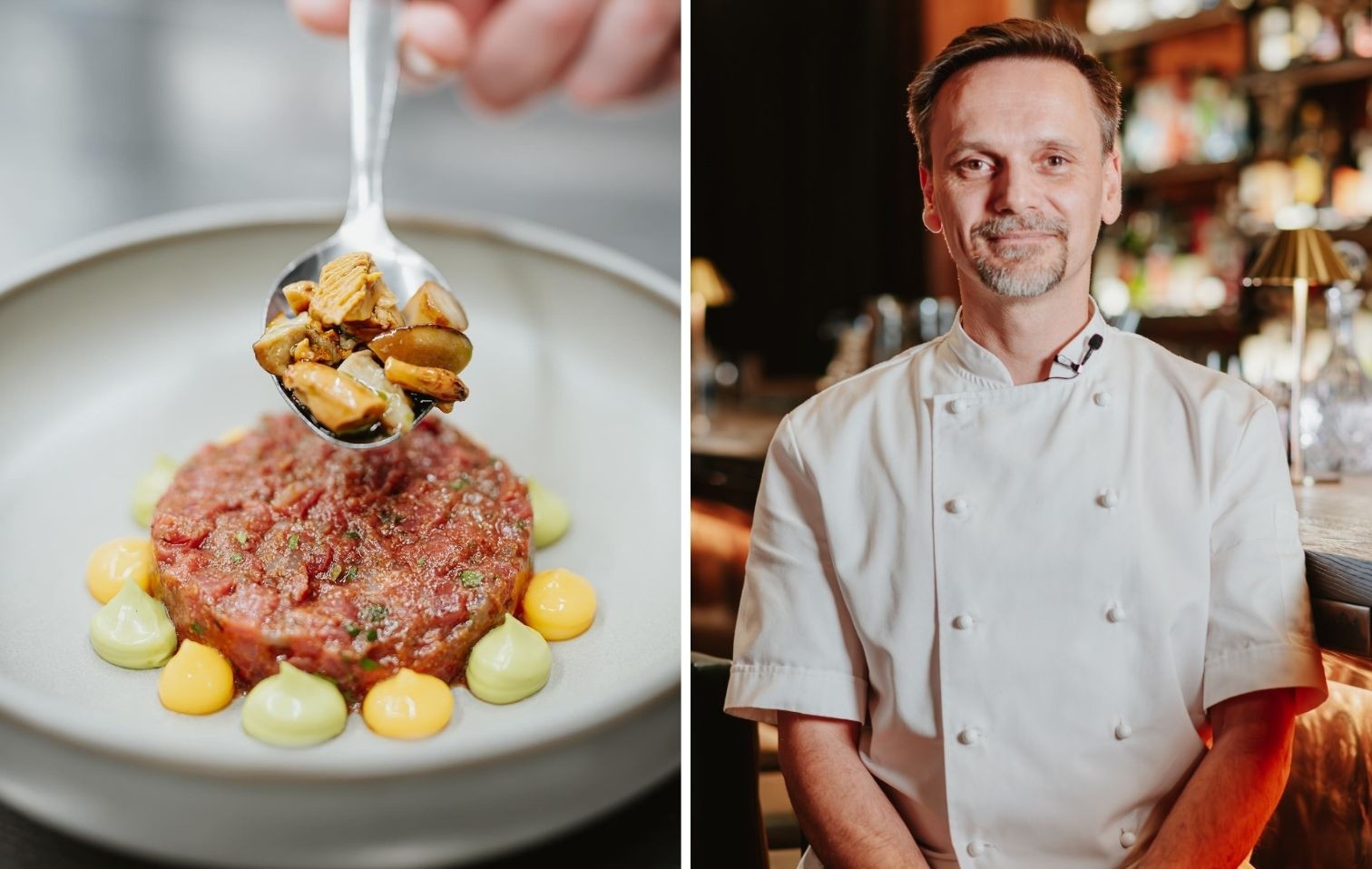"The kitchen side? That's not enough: everything has to be sustainable, from the wines to the tableware." It is with this philosophy that chef Paweł Wątor and co-owner Mateusz Trzeciak led their restaurant, Eliksir, in Gdansk, to win Poland's first MICHELIN Green Star. An award that recognizes innovation and sustainability, cornerstones of this project that combines cuisine and environment in perfect balance.
A restaurant symbol of sustainability
Eliksir is not just a place to eat, but an ethical project. Founded by the two partners as their first independent project, the restaurant reflects their vision: to use every ingredient to the fullest, enhancing local produce and reducing waste and environmental impact. In fact, the restaurant relies on high-quality local products, many of which come from the Pomeranian region. The basic idea? Turn each ingredient into a culinary experience, respecting it in its entirety.
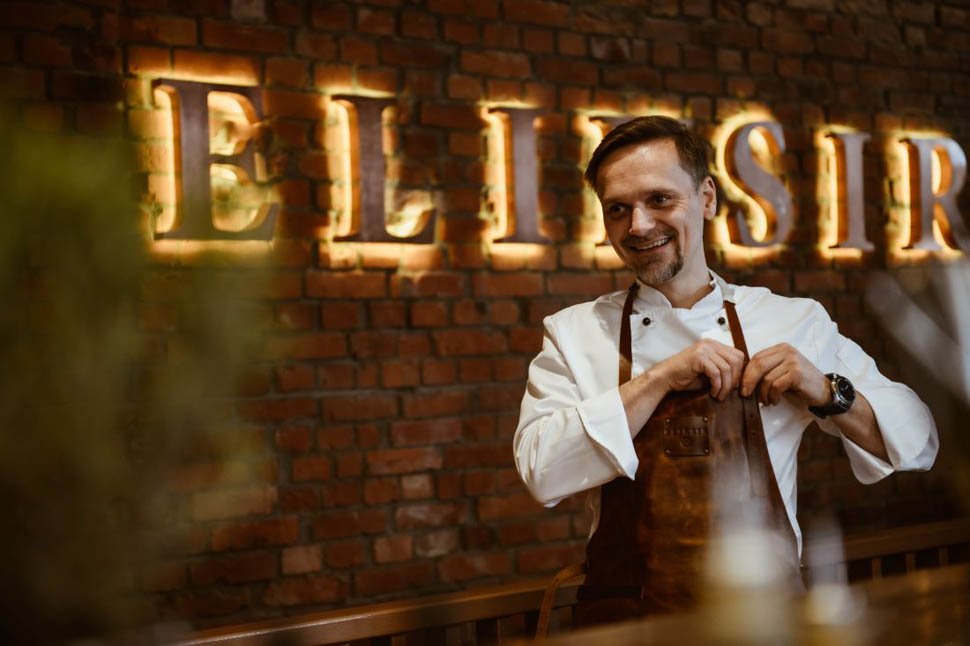
Small steps strategy
"We believe in a strategy of small steps. Each small action, added to the others, can lead to a big change, “ Mateusz Trzeciak explains to Michelin Guide's online magazine. This approach is reflected both in the kitchen and at the bar, where every scrap becomes a new opportunity. When working on a new dish, the team examines each component, wondering what can be done with the unused parts. This is how, for example, orange peels become flavor garnishes for cocktails, while the juice is transformed into a sauce for gravlax salmon. What remains of the oranges is then used to make bitters or infusions.
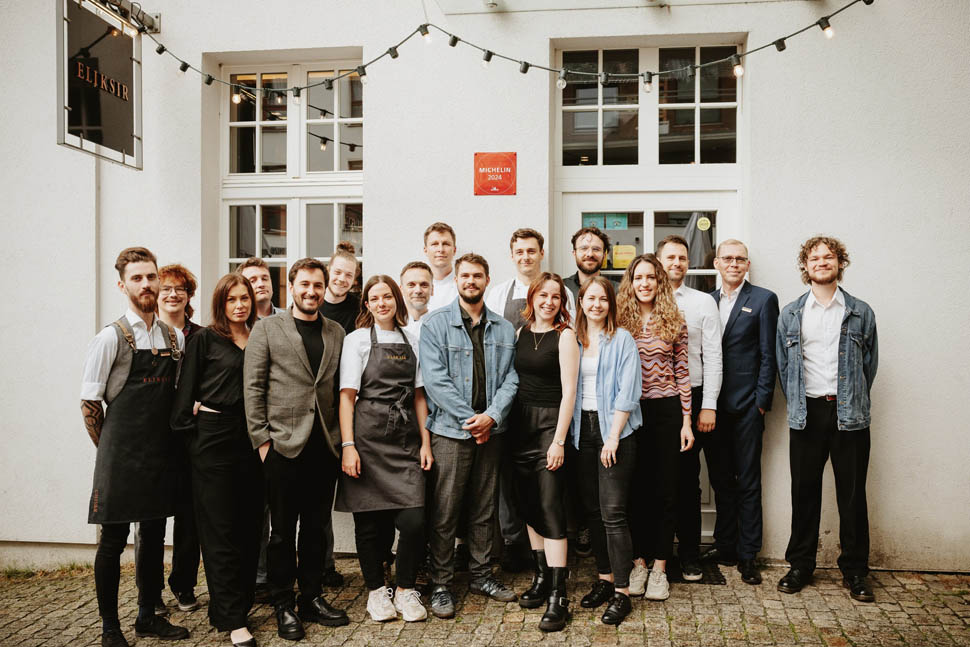
Circular ingredients: the heart of the project
“We take this approach with many ingredients,” chef Wątor explains. “Scraps, cores, green parts: everything that is not considered ‘noble’ can be turned into powders, jams or fermented for future uses.” This philosophy is not only ethical but also financially sustainable, reducing waste and maximizing the use of raw materials.
The bar: an extension of the kitchen
It is not only the kitchen that is sustainable: Eliksir's beverage program follows the same principle. Poland takes center stage: the bar boasts some 50 domestic products, including gin, vodka, and even whiskey, reducing its transportation-related carbon footprint and supporting the local economy. Even the wines follow this philosophy: the menu includes Polish labels and international producers who practice organic farming. In addition, for beer lovers, there are offerings from local craft breweries.
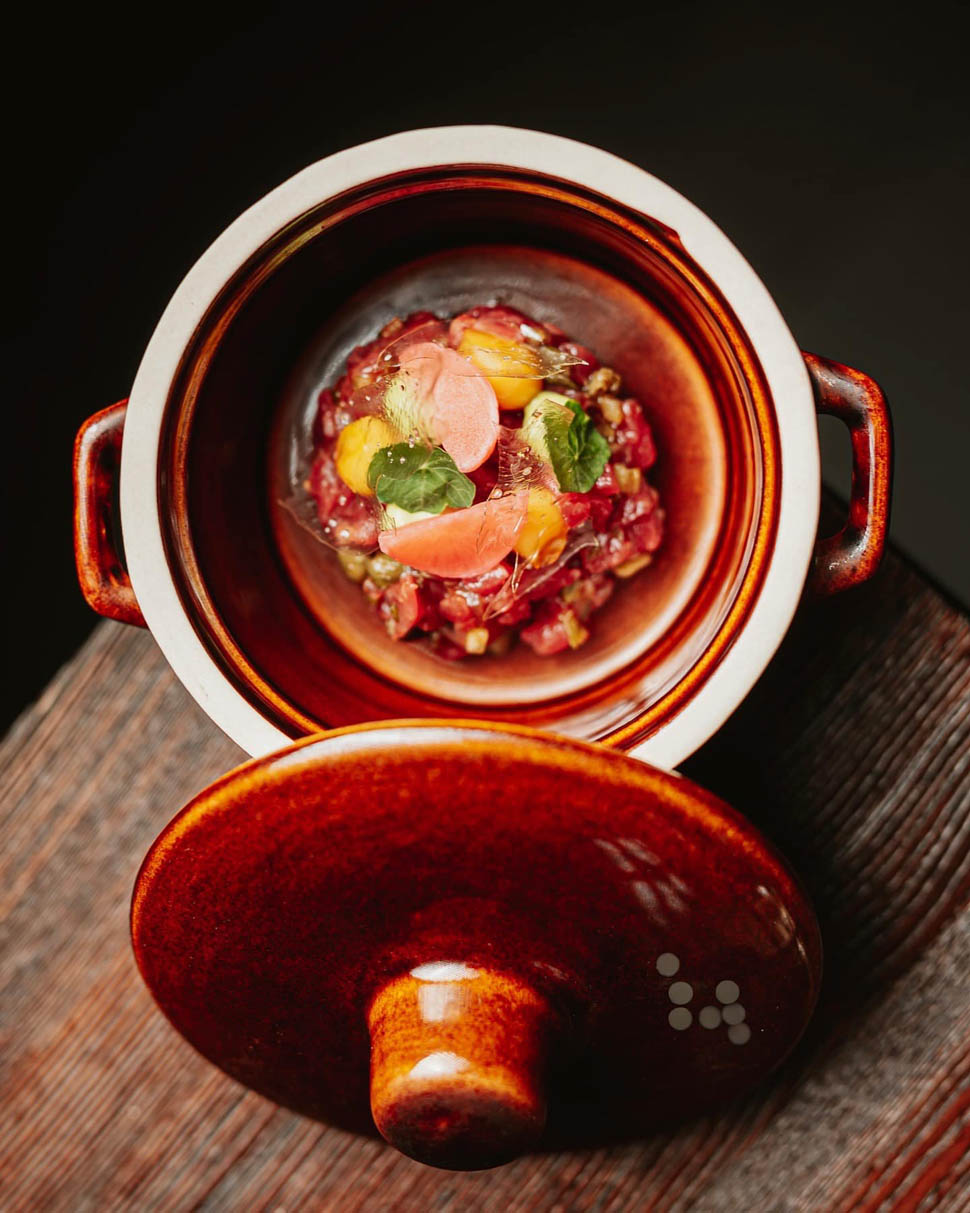
Sustainable design and details
Sustainability at Eliksir goes beyond food and drink. "From day one, we served our cocktails with metal straws, when they were practically unavailable in Poland, ” Trzeciak says. Disposable coasters have been replaced with reusable wooden discs, while on the tables we find elegant, durable leather mats. Every detail of the restaurant is designed to reduce waste without sacrificing elegance, a perfect example of how style and sustainability can go hand in hand.
A role model for the future
Eliksir is not just a restaurant, but an example of how the restaurant industry can be a model for sustainability. With its philosophy of small steps, enhancement of local produce, and creativity in resource management, chef Paweł Wątor and Mateusz Trzeciak are redefining what it means to cook for the planet.
